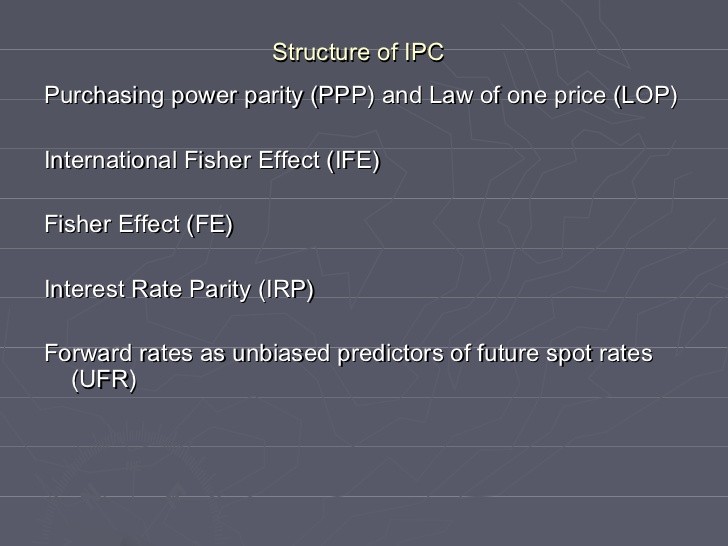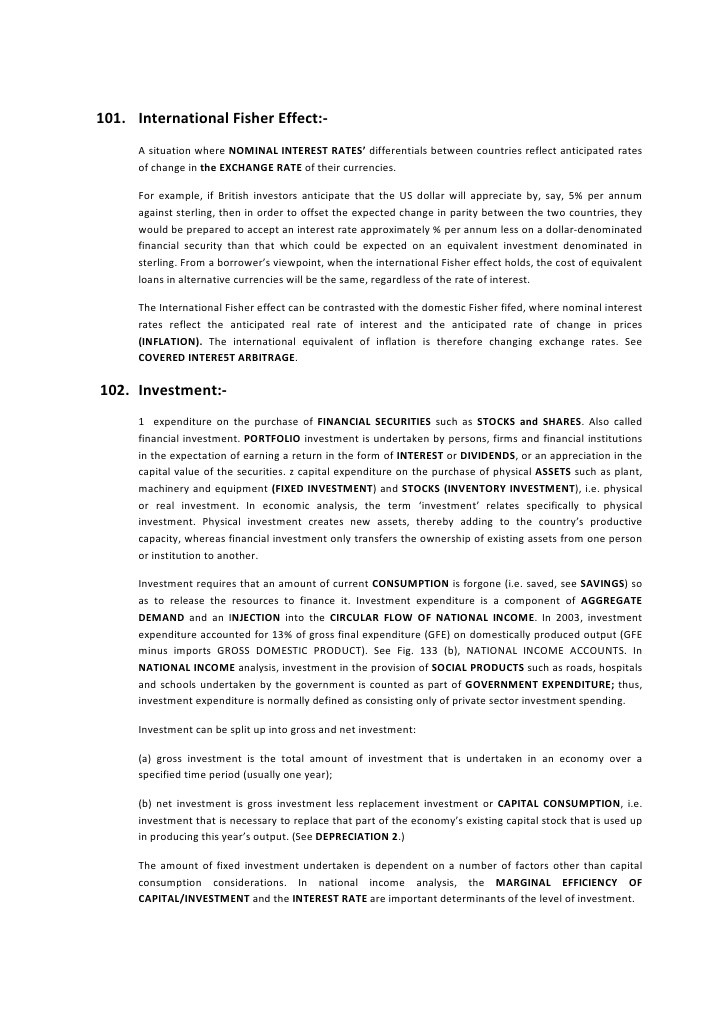Question 17 Suppose The International Fisher Effect
Post on: 19 Август, 2015 No Comment

Question 17: Suppose the International Fisher Effect is true. The annual nominal (riskless) rates of return in US and Mexico are 4% and 3% respectively. The annual inflation rates in US and Mexico are 3% and 4.5% respectively. Then over a year we expect that against the peso:
A) the dollar will appreciate by about 1%
B) the dollar will depreciate by about 1%
C) the dollar will appreciate by about 1.5%
D) the dollar will depreciate by about 1.5%
Question 18: You expect the euro to depreciate substantially. You would speculate by _______ euro call options or _______ euros forward in the forward exchange market.
A) selling; selling
B) selling; purchasing
C) purchasing; purchasing
D) purchasing; selling
Question 19: The shorter the time to the expiration date for a currency, the _______ will be the premium of a call option, and the _______ will be the premium of a put option, other things equal.
A) greater; greater
B) greater; lower
C) lower; lower
D) lower; greater
Question 20: A weak dollar is normally expected to cause:
A) high unemployment and high inflation in the U.S.
B) high unemployment and low inflation in the U.S.
C) low unemployment and low inflation in the U.S.
D) low unemployment and high inflation in the U.S.
Question 21. A US firm has a foreign subsidiary. The risk that items like equity, assets etc. in the firm’s balance sheet may change in value is:
A) Translation exposure
B) Transaction exposure
C) Currency exposure
D) None of the above
Question 22. A US firm has a foreign subsidiary. The risk to its cash flows from changes in exchange rates is:
A) Translation exposure
B) Transaction exposure
C) Currency exposure
D) None of the above

Question 23: A call option on Euros has a strike price of $.68. The spot rate is Euro 1 for $.70. This call option is:
A) in the money.
B) out of the money.
C) at the money.
D) at a premium.
Question 24. Given a home country and a foreign country, purchasing power parity (PPP) suggests that:
A) a home currency will depreciate if the current home inflation rate exceeds the current foreign interest rate.
B) a home currency will appreciate if the current home interest rate exceeds the current foreign interest rate.
C) a home currency will appreciate if the current home inflation rate exceeds the current foreign inflation rate.
D) a home currency will depreciate if the current home inflation rate exceeds the current foreign inflation rate.
Question 25. Assume that the U.S. inflation rate is higher than the New Zealand inflation rate. This will cause U.S. consumers to _______ their imports from New Zealand and New Zealand consumers to _______ their imports from the U.S. According to purchasing power parity (PPP), this will results in a(n) _______ of the New Zealand dollar (NZ$).
A) reduce; increase; appreciation
B) increase; reduce; appreciation
C) reduce; increase; depreciation
D) reduce; increase; appreciation














